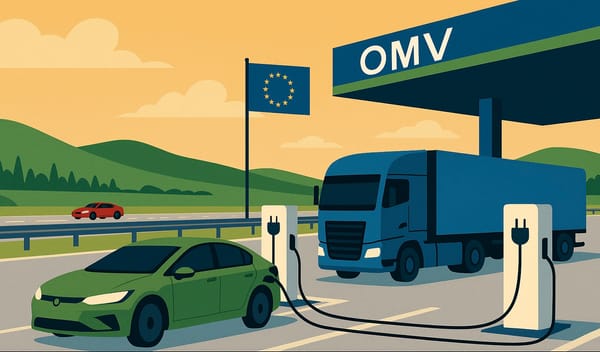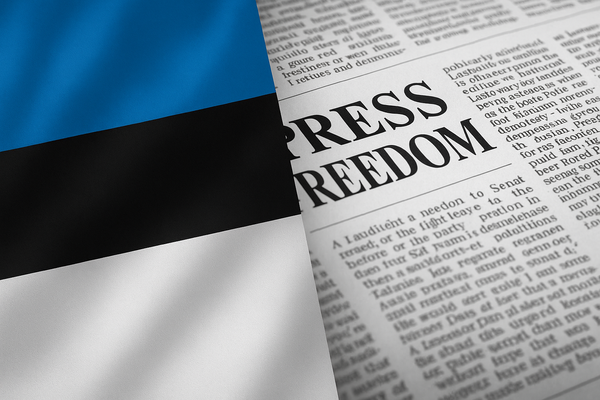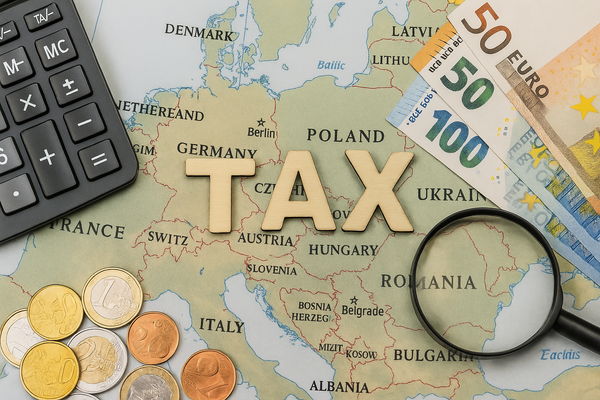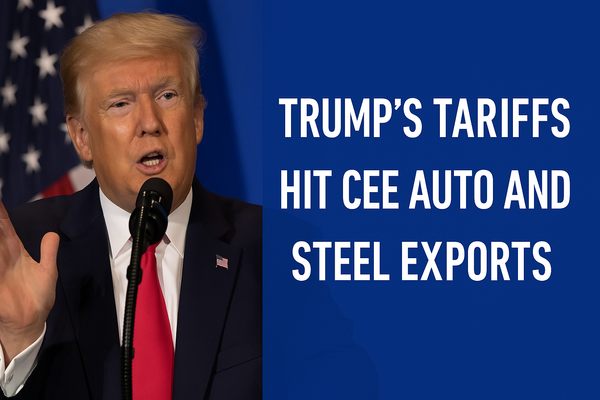
Czech govt unveils austerity package
The Czech government announced “Czechia in Shape”, a new tax package to reduce the state budget deficit on Thursday 11 May.
The package, designed to cut debt by CZK 94bn (EUR 4bn) in 2024 and CZK 150bn in 2025, includes a range of measures such as raising the pension age and hiking corporate and real estate taxes.
Czechia to scale down state
In addition to the tax changes, the “Czechia in Shape” package involves scaling down non-investment subsidies by CZK54.4bn and reducing the cost of running the state by another CZK20bn over the next two years. The package also includes lowering VAT on food from 15% to 12%.
Fiala told members of the press that the government is committed to addressing the issues and improving the country’s financial situation. Coalition partners Marketa Pekarova of the free market TOP 09 party, Vit Rakusan of the centre-right Mayors and Independents, and Ivan Bartos of the liberal Pirate Party, all expressed varying degrees of support for the reforms.
However, there are concerns that the measures may be too radical and could have unintended consequences for individuals and businesses in the coming years, Hospodarske Noviny noted.
Similar packages are rumoured to be under consideration by other Central European countries such as Slovakia and Estonia in the next few months, as they also face financial challenges due to the pandemic and the cost of living crisis.
Press unhappy with govt decision
While the government increased VAT on printed newspapers from 10% to 21%, printed magazines will have a reduced taxation rate of 12%.
Czech Finance Minister Zbynek Stanjura justified the decision as magazines being socially unimportant, unlike scientific journals.
This contradicted a statement made by Czech Prime Minister Petr Fiala in February, daily Hospodarske Noviny noted, when he stated that he did not want newspapers to be taxed more, as they play an essential role in society.
However, the decision to increase VAT on newspapers sparked criticism from local publishers. Czech Publishers’ Association Chairwoman Libuse Smuclerova said the proposal could be the final nail in the coffin for newspaper publishing in the Czechia, given rising energy and paper prices.
She also noted that other European countries have significantly lower VAT rates for printed media, with Germany, Poland, Italy, Spain, and France ranging from 2.1% to 8%.
Smuclerova warned that the government’s decision could undermine the democratic press in Czechia, as newspapers are a crucial source of information for readers seeking to navigate the misinformation found on the internet.
Property, medicine taxes hiked
New apartments and medical supplies which were subject to a 15% tax, could also become cheaper. By combining the rates, VAT will be reduced by three percentage points. Medicines as such will paradoxically become more expensive, as until now they fell within the 10% rate.
“Regarding over-the-counter medicines, the VAT hike will be felt directly by patients, as the price for the final consumer consists of the manufacturer’s price, the trade mark-up and VAT. By increasing the VAT, the final price will also increase,” Czech Innovative Pharmaceutical Industry Association director David Kolar said.
The government also listened to the long-term calls of traders and grocers for a reduction in VAT on food, which has seen major price hikes in the last year.
The rate reduction was welcomed by Agrarian Chamber President Jan Dolezal, although according to him, the government could have been more ambitious.
“We must ensure that the rate cut really helps customers buy basic food and not just help raise the profits of foreign business chains,” Dolezal said.
Trade and Tourism Association chief Tomas Prouza tweeted that shops will “fully reflect the lower VAT in prices”.
The Fiala government wants to hike levies on spirits, tobacco and gambling, for which consumption tax should increase by 10% next year but has criticism for granting an exemption for non-sparkling wine, for which excise duty remained at zero.
“I am outraged. Especially the unfairness, when the government gives the Moravian political Palermo a gift with wine, while it punches brewers, maltsters, barley growers and microbreweries right between the eyes said Lubos Kastner from the Association of Small and Medium-Sized Entrepreneurs, in response to a 21% increase in excise duty on spirits and increase in VAT on draft beer.
VAT was reduced to zero instead of a 2% increase.
Czech book publishers had braced themselves for bad news, ahead of the government’s consolidation package, but they can finally celebrate, according to Hospodarske Noviny. Destitute publishers, burdened by higher paper, rent or energy prices, thus avoided the “last death blow” they had originally expected.
Books thus represent a unique exception in the VAT adjustment, which, according to the Minister of Finance Zbynek Stanjura, has the main goal of simplifying the system.
It currently featured three rates – the basic 21% and 2 reduced rates of 10% and 15%. The reduced rates will now be combined into a single 12% rate.
This will continue to apply to gluten-free products, water and sewage, heat, passenger transport, accommodation and catering services, tickets to cultural and sporting events, magazines, medicines, construction work for housing, food, child car seats and funeral services, Stanjura said.
Other items that have previously been at one of the reduced rates will move to the basic 21% – such as draft beer and newspapers, although magazines will remain at the reduced rate.
“A zero VAT rate was a long-term goal for us, but we did not expect that it would be fulfilled already this year. This is great news for the book market, readers and all those who desire education,” said Martin Vopenka, owner of the Prah publishing house and chairman of the Association of Czech Booksellers and Publishers.
“This is a significant relief for publishers, which will make it easier to publish more demanding books and allow prices to be reduced so that they are affordable,” he said.





